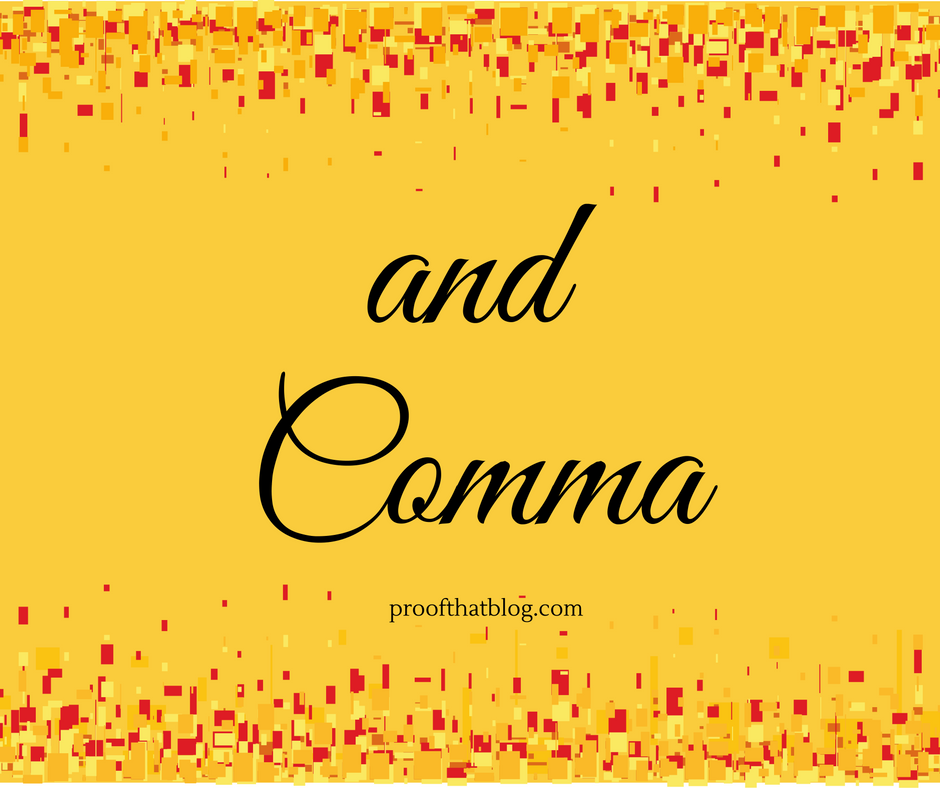 Something that I see a lot in my daily proofreading is a comma before and. Apparently, the lessons in elementary school on serial commas or using commas in compound sentences have morphed into ALWAYS using a comma before the word and. Here are the tricks I use to help figure this out.
Something that I see a lot in my daily proofreading is a comma before and. Apparently, the lessons in elementary school on serial commas or using commas in compound sentences have morphed into ALWAYS using a comma before the word and. Here are the tricks I use to help figure this out.
First, sometimes a compound sentence (which is a sentence of two independent clauses joined by a conjunction) is confused with a simple sentence with a compound predicate (the part of the sentence telling what the subject does or what is done to the subject or the subject’s state of being).
So when you have a sentence that reads:
Jamie was a paralegal and she was highly skilled in trial graphics.
you should read on each side of the and so you will read:
Jamie was a paralegal.
She was highly skilled in trial graphics.
Those are two independent sentences, so a comma is needed before the and when you make it a compound sentence.
Jamie was a paralegal, and she was highly skilled in trial graphics.
Where you have a sentence with a compound predicate, such as:
Jamie was a paralegal and was highly skilled in trial graphics.
there is no comma. You can’t say:
Jamie was a paralegal.
Was highly skilled in trial graphics.
so it is not two independent clauses.
When you are confused about whether they are independent clauses or not, read each part on either side of the and as if it were a separate sentence. If it is a complete sentence, then put the comma before the and. If the two clauses do not make sense as an independent sentence, then there is no comma before the and.
Here are some more examples to help you see this concept.
He needed to go to the grocery store, and he was going to meet James for lunch.
COMPOUND?
He needed to go to the grocery store.
He was going to meet James for lunch.
YES – NEEDS A COMMA.
He needed to go to the grocery store and was going to meet James for lunch.
COMPOUND?
He needed to go to the grocery store.
Was going to meet James for lunch.
NO – NO COMMA NEEDED.
The corporation filed its annual report with the Corporation Commission, and it paid the required fee.
COMPOUND?
The corporation filed its annual report with the Corporation Commission.
It paid the required fee.
YES – NEEDS A COMMA.
The corporation filed its annual report with the Corporation Commission and paid the required fee.
COMPOUND?
The corporation filed its annual report with the Corporation Commission.
Paid the required fee.
NO – NO COMMA NEEDED.
I hope this helps with some of the constant “comma drama” that you may find yourself in daily. Email proofthatblog@gmail.com if you have any other “drama” that you would like to see as a topic of a future Proof That proofreading blog post.


 Follow
Follow